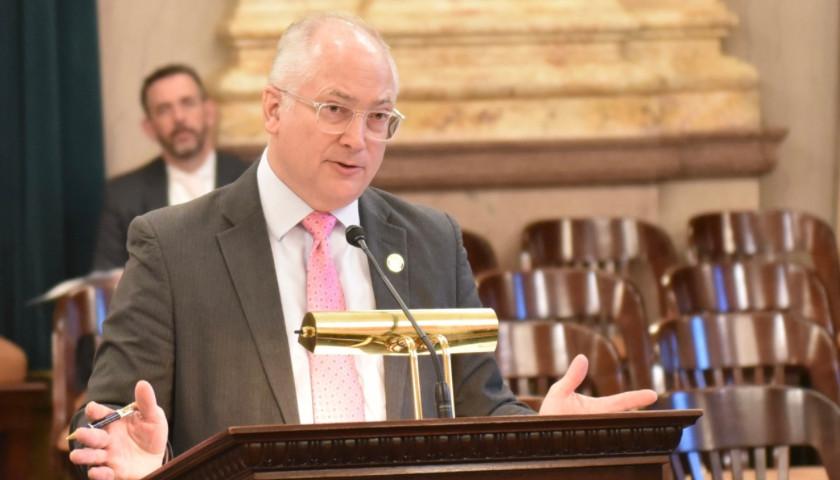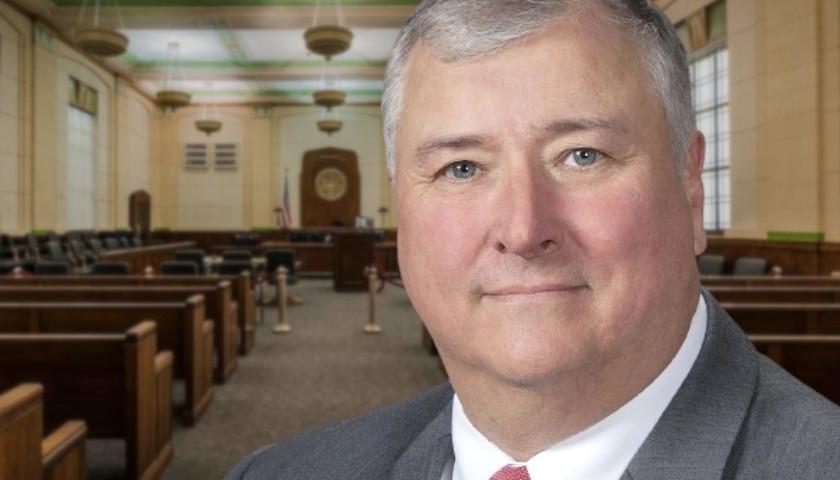by J.D. Davidson
FirstEnergy has agreed to give up what could have been a $120 million windfall in 2021, and Ohio put on hold its ongoing lawsuit relating the state’s nuclear bailout law.
Ohio Attorney General Dave Yost announced Monday what he called a “big win” for state consumers when the energy company said it would forego a provision in the law that guaranteed FirstEnergy the ability to recapture yearly profits based on its profit numbers from 2018.
For example, Yost said, FirstEnergy would have collected $120 million in 2021.
“A for-profit company, probably as a matter of morality, should not be able to guarantee its profits against the marketplace as a matter of law,” Yost said at a news conference. “This is a big win for consumers and, frankly, good for the economy because with manufacturers and large commercial users, electricity would have a large financial impact.”
The agreement, along with an earlier injunction that stopped state consumers from having to pay a new fee at the beginning of this year that funded the bailout, ultimately stops $2 billion from flowing from customers to energy companies over the lifetime of House Bill 6, Yost said.
“When you take the nuclear subsidy and decoupling remedy, this office and its actions are nearing a $2 billion savings for the consumers for Ohio,” Yost said. “That’s $2 billion savings for future years that would have been taken out of the Ohio economy, taken out of consumers’ pockets that would have been there before House Bill 6.”
Yost, who also announced Monday he will not run for retiring U.S. Sen. Rob Portman’s seat but will, instead, run for reelection, said the state will put on hold its lawsuit as criminal proceedings move forward, while preserving its claims for the future.
HB 6 led to a $60 million bribery and racketeering scandal and the indictment of former Ohio House Speaker Larry Householder, along with others
Throughout the fall, the Ohio House debated several proposals to repeal and replace HB 6. Rep. Jim Hoops (R-Napolean) chairperson of the Select Committee on Energy Policy and Oversight, introduced House Bill 798, which delays charges to ratepayers until Jan. 1, 2022, and delays the first disbursement to Energy Harbor by a year until April 2022.
The bill also adds tougher audit provisions and requires an annual financial need assessment. It requires an independent, third-party auditor, and Energy Harbor faces the possibility of losing credits if it fails to produce any requested document.
Democrats offered measurers in committee to repeal House Bill 6, along with amendments to Hoops’ proposal that were all rejected.
– – –
J.D. Davidson is a regular contributor to The Center Square. An Ohio native, Davidson is a veteran journalist with more than 30 years of experience in newspapers in Ohio, Georgia, Alabama and Texas.
Photo “Attorney General Dave Yost” by AG Dave Yost.





